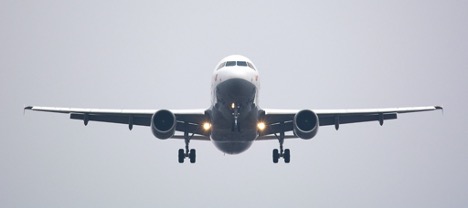British Airways Partners with ZeroAvia to Achieve Net-Zero Emissions by 2050
British Airways has invested in and formed a partnership with ZeroAvia. Through this joint effort funded by the Hangar 51 incubator program and grants from the UK government, the airline plans to achieve zero-emissions flights by 2050.
In late 2020, ZeroAvia completed the HyFlyer I project, the world’s first hydrogen-electric powered flight with a 6-seat Piper Malibu M350 aircraft at its R&D facility in Cranfield, England. The company is currently working on the HyFlyer II that will seat between 10-20 passengers and travel up to 500 miles without needing to refuel.
The test flight successfully completed taxi, take-off, full pattern circuit, and landing at Cranfield Airport. When the flight made international news, British Airways’ parent company, IAG, decided the two companies should form a partnership through the Hangar 51 accelerator.
IAG and British Airways’ Commitment to a Future of Sustainable Air Travel
The Hangar 51 accelerator and incubator program works with start-ups and later-stage companies looking to scale, and companies are selected based on their ability to solve major business problems. After each round, the participants share their research and findings then determine how any partnerships formed will proceed in the longer term.
The airline industry is looking to move away from fossil fuels and reduce fuel and maintenance costs over the long term, especially since bouncing back from the pandemic will be a challenge on several levels. ZeroAvia is poised to solve this problem by commercializing its hydrogen-electric fuel cell technology. To scale operations to the level needed to make hydrogen-electric flights available internationally and able to fly longer distances, additional investment is required—along with strategic partnerships that are equally invested in bringing zero-carbon flights to the market.
British Airways setting a goal of attaining zero emissions by 2050, and a mix of long-haul and short-haul flights out of both the US and the UK, made them an ideal partner to further develop ZeroAvia’s proprietary hydrogen-electric technology and enable it to serve more passengers and larger airports.
Louise Evans, Director of External Communications & Sustainability at British Airways, stated upon the formation of the partnership: “We are very excited to partner with ZeroAvia and get a glimpse of a zero-emissions future using hydrogen-powered aircraft. During the partnership, as well as assessing the environmental advantages of the technology, we will also be exploring the operational, commercial and customer experience improvements that can be achieved.”
Future Plans for British Airways and ZeroAvia
British Airways recently retired its last Boeing 747 aircraft during the same week the partnership was announced, four years earlier than the airline initially planned to, to prove its dedication to leading the aviation industry towards a sustainable future powered by hydrogen and other renewable sources. The airline is currently replacing most of its aircraft with more fuel-efficient models such as the A350 and 787 jet, and the partnership with ZeroAvia provides more opportunities for electrified aircraft and hydrogen-electric powertrain technology that will be more environmentally friendly than traditional jet fuel.
British Airways is also investing in other renewable fuel sources, as the airline is planning a waste-to-fuel plant in Lincolnshire that they estimate will be completed by 2025. The fuel produced by this plant will power all British Airways flights, but by 2022, the company is also looking to replace most of its current fuel supply with sustainably sourced ethanol. Parent company IAG has committed over $400 million to green tech investments and has also declared a mission to power 10% of all of its subsidiary companies’ flights to utilize sustainable aviation fuel by 2030.
With the success of ZeroAvia’s HyFlyer I project in September 2020, the company expects its 19-seat hydrogen-electric powered aircraft solutions to be market-ready by early 2023. The HyFlyer II project will be capable of seating 10-20 passengers and travel up to 500 miles, and HyFlyer III is expected to be completed by 2026 and seating up to 80 passengers and traveling 1,000 miles. ZeroAvia ultimately plans to have its hydrogen fuel cells power aircraft with up to 100 seats and fly more than 1,000 miles by 2030.
British Airways and ZeroAvia both belong to the Jet Zero Council, a private-public partnership between the UK government and the airline industry to foster innovation in sustainable energy sources for the aviation and aerospace sector.
About ZeroAvia
ZeroAvia is a global leader in zero-emission aviation with an emphasis on hydrogen-electric power solutions for a variety of aviation markets, namely the 500-mile range and 10-20 seat aircraft markets. With operations in the United States and United Kingdom, ZeroAvia has secured experimental certificates for its prototype aircraft from both the CAA and FAA, surpassed major milestones with its flight tests, and is on track for commercialization by 2024. The company is supported by Horizon Ventures, Breakthrough Energy Ventures, and its UK operations are supported by Innovate UK, the Aerospace Technology Institute. ZeroAvia is also part of the UK Government’s Jet Zero Council.

